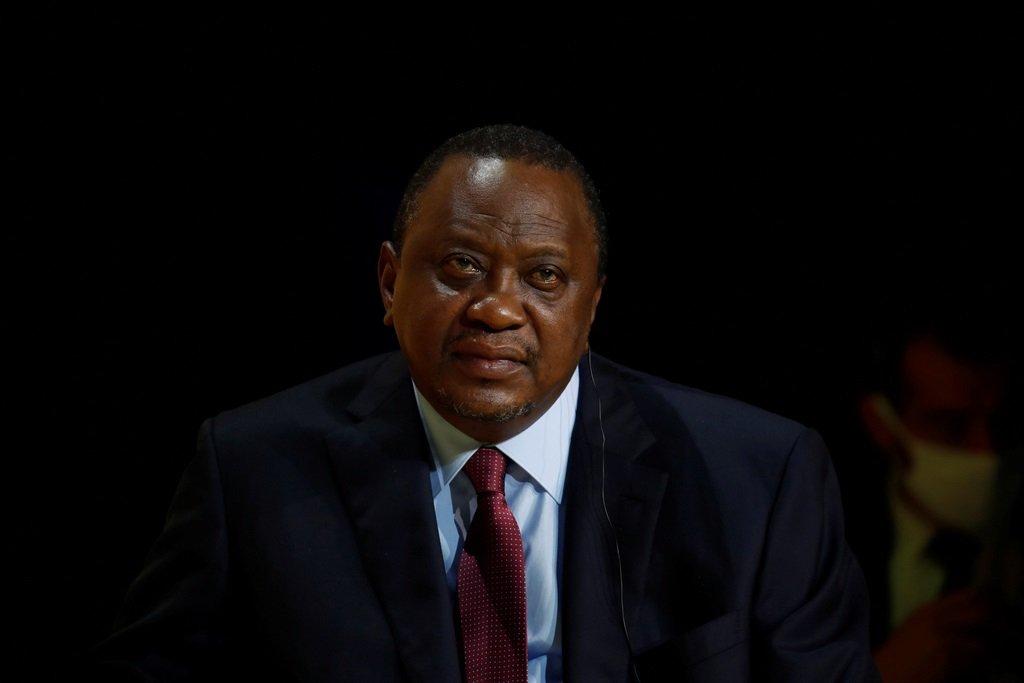Africa-Press – South-Africa. The African Union-led Ethiopian peace talks, set for Sunday in South Africa, hang in the balance after former Kenya president Uhuru Kenyatta said he would not be attending due to a conflict in his diary.
Kenyatta was set to join former Nigeria president Olusegun Obasanjo, who is the AU High Representative for the Horn of Africa, and former deputy president of South Africa and member of the African Union (AU) Panel of the Wise, Phumzile Mlambo-Ngcuka.
In a statement, which exposed poor communication among peace talk negotiators, Kenyatta made reference to a press statement issued on Wednesday that announced his attendance at the peace talks, which seemingly meant they didn’t check regarding his availability.
“Regrettably, I wish to notify your office that I will not be able to attend the AU Convened Peace Talks scheduled for 8 October 2022 in South Africa, owing to conflicts in my schedule,” he said.
He mentioned that, while they could be considering a new date for the talks, he would be “grateful” to receive further clarity on the rules of engagement and who else would be attending.
Kenyatta, who was initially the preferred choice to be the convenor by Tigray’s transitional government, raised similar issues as those by Tigray during the week.
Tigray’s transitional government demanded to know who else was invited and what part they would be playing in the peace process.
Kenyatta’s withdrawal coincides with a Reuters report on Friday, which said the talks could be moved to another date because of logistical challenges.
However, the chairperson of the AU Commission, Moussa Faki Mahamat, is optimistic the peace talks to end hostilities will be a success.
In a statement, Mahamat reassured the world there was “avowed commitment” from the Tigray transitional government and Ethiopia’s federal government to the restoration of peace and stability.
Who should lead the talks?
The Tigray People’s Liberation Front’s (TPLF) preferred choice to lead the talks is Kenyatta, but Ethiopia wants Obasanjo.
Last month, the AU extended Obasanjo’s tenure as its Horn of Africa representative. Therefore, the talks are set to be led by Obasanjo.
In a statement acknowledging the talks, the TPLF wanted to know whether “there will be additional actors to be invited as participants” and whether the TPLF negotiators’ security was guaranteed.
The United States Special Envoy for the Horn of Africa, Mike Hammer, is in Kenya to meet President William Ruto ahead of the talks.
Talks amid renewed fighting
On the same day the Tigray transitional government acknowledged the invitation for talks in SA, it issued a statement claiming that Ethiopia and its war ally, Eritrea, had carried out a drone attack in Adi Daero, northern Tigray.
“Over 65 people were killed, while over 70 were wounded,” Tigray’s external affairs office said, adding that the death toll could rise due to a shortage of medicines.
It was the second attack in the space of a week in the same area.
The first, on 27 September, was conducted by Eritrean forces, according to the TPLF.
Blame game
During the stretch of the conflict that began in November 2020, both parties accused each other of human rights violations.
Oromiya, the country’s most populous region, saw record deaths, prompting the government-run Ethiopian Human Rights Commission (EHRC) to investigate abuses.
Human Rights Watch (HRW) pointed out that the EHRC report didn’t document abuses on the Tigray people, such as extrajudicial killings, enforced disappearances, arbitrary arrests and forced expulsions, as well as the obstruction of humanitarian assistance.
The TPLF and Ethiopian National Defence Force blamed each other.
Another report, conducted by Amnesty International, blamed the Ethiopian government, who rejected the report as unbalanced.
The latest report by HRW documents that fighters from both sides were complicit in human rights abuses, such as civilian killings and rape.
UN Human Rights Council mandate
The UN Human Rights Council sat from 22 September to 7 October.
It extended the mandate of the International Commission of Human Rights Experts on Ethiopia and Support Accountability to end Cycles of Atrocities.
The council heard that, in Ethiopia, a culture of impunity for grave human rights violations persists.
Justice and accountability for gross human rights violations, both past and present, were hampered by gaps in Ethiopian criminal laws.
Impunity was exacerbated by the government’s inability to exercise jurisdiction over some of the forces suspected of committing violations and abuses in northern Ethiopia – and, even where it can, the government lacks the political will to do so effectively.
As the conflict rages on, it is difficult to imagine the cooperation of Ethiopian and Eritrean governments, as well as that of Tigrayan forces, in the investigation and prosecution of high-ranking officials suspected of crimes against humanity and war crimes.
For More News And Analysis About South-Africa Follow Africa-Press






